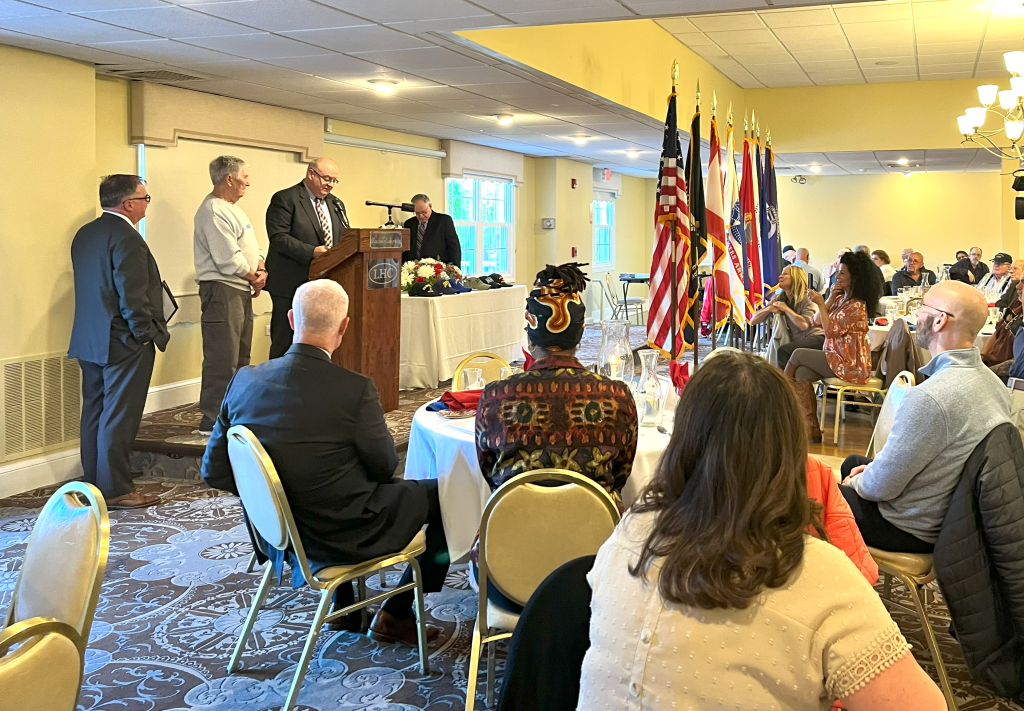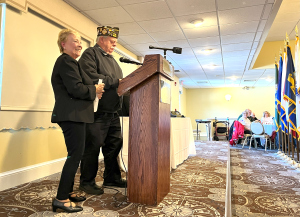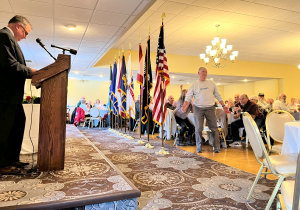
More than 200 people gathered at Rachel’s Lakeside in Dartmouth on Nov. 3 to celebrate veterans, express gratitude for their service, and learn about the challenges they face.
They also came to honor one of their own.
James “Jim” Collins, an Air Force veteran and Dartmouth’s veterans agent from 1966 until his retirement in 2003, was honored for his many achievements and broad support for veterans.
Collins joined the Air Force in 1953 and served in Korea, Okinawa, and Japan. He is a member of Dartmouth Memorial Post 9059, Dartmouth Friends of the Veterans, and American Legion Post 307.

Although a regular at the annual lunch and selected to lead the day’s Pledge of Allegiance, Collins was unaware that he was being singled out for a citation.
As he rose to make his way to the podium, he gave the audience a look and gesture as if to say, ‘Why me?’
The crowd, however, had no questions about why the accomplished and respected veteran was being honored and rose to their feet in recognition of his military and town service.
The Friends of the Elderly event also featured retired U.S. Army Col. Daniel Arkins, director of development at the HomeBASE program at Massachusetts General Hospital, as the main speaker. HomeBASE is “dedicated to healing the invisible wounds of war including PTSD for veterans of all eras, service members, military families and families of the fallen,” according to the program’s website.
The organization provides clinical care and support for unseen wounds like traumatic brain injury, depression and post-traumatic stress.
Arkins spoke in detail about the number of veterans who return home with wounds that can’t be seen. The U.S. has lost servicemen and women in combat, but those numbers can’t compare to the losses that are taking place after veterans return home, he said.
“Almost 20 times the number of veterans killed in two decades of war have taken their own lives in that period of time,” he said
Arkins said the Veterans Administration cannot be the only solution to this massive problem. There are over 9 million veterans enrolled in the VA system, but that’s just a portion of the 17 million veterans that exist, he said.
“We complement the VA in delivering care,” he said.
One specific way HomeBASE is achieving this, Arkins said, is by providing care to those who have not been discharged honorably, a requirement for receiving VA care. This category represents about 6 percent of veterans, he said.
“There’s growing evidence that in those discharges, the behavior that led to the discharge may have been related to undiagnosed traumatic brain injury,” Arkins said.
For more information on HomeBASE and the work that they do, visit www.homebase.org.


Recent Comments